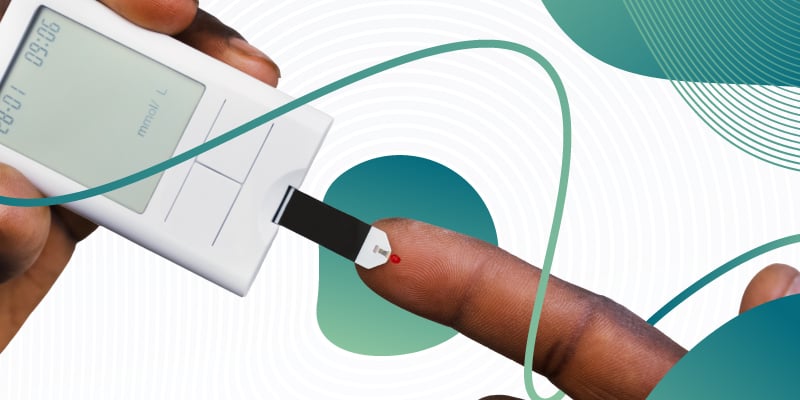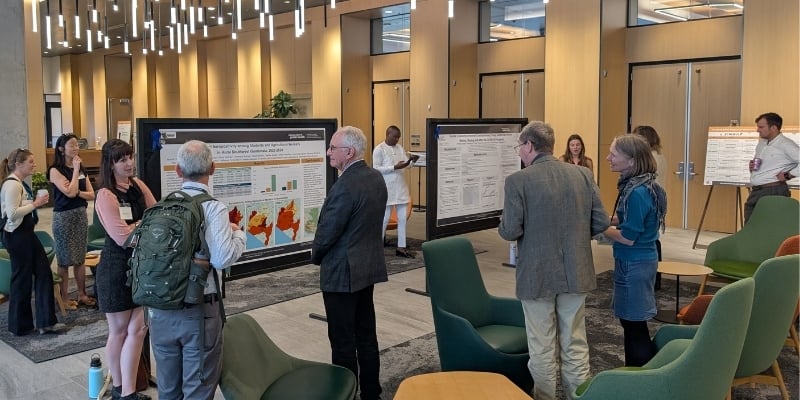Aurora, Colorado (October 10, 2024)—The National Institutes of Health (NIH) announced the
Lifecourse Epidemiology of Adiposity & Diabetes (LEAD) Center at the Colorado School of
Public Health (ColoradoSPH) will join a newly launched, nationwide DISCOVERY consortium
to address the dramatic rise in youth diagnosed with type 2 diabetes over the past two decades, a
trend that is expected to continue. The effort aims to advance understanding of the biologic,
social, and environmental drivers of youth-onset type 2 diabetes, with the goals of determining
which children are at highest risk for developing the disease and how to better prevent, screen
for, and manage type 2 diabetes in young people.
“Type 2 diabetes, which used to be called “adult-onset” diabetes until relatively recently, is now
a pediatric condition on the rise in many communities in the US and worldwide; large landmark
studies have documented these concerning trends, the aggressive nature of the disease, and many
gaps in our ability to predict, prevent and adequately treat youth-onset type 2 diabetes,” said
Dana Dabelea, MD, PhD, Associate Dean of Research, Conrad M. Riley Distinguished
Professor, and Director of the LEAD Center at ColoradoSPH. She continued, “We are honored
to join this group and look forward to participating in this effort by working with underserved
communities to improve the lives of at-risk youth and their families.”
The observational study is funded by the National Institutes of Health’s National Institute of
Diabetes and Digestive and Kidney Diseases (NIDDK) and builds on previous NIDDK-funded
research indicating that youth-onset type 2 diabetes is more challenging to treat and progresses
more aggressively compared to adult-onset type 2 diabetes. In youth with type 2 diabetes, good
blood glucose control is harder to achieve, and the ability of the pancreas to secrete insulin
declines much more rapidly. Many young people with type 2 diabetes also don’t respond well to
metformin, the drug most commonly used as the first-line treatment for diabetes in adults. In
addition, youth-onset type 2 diabetes is associated with earlier development of diabetes-related
complications, such as damage to the eyes, kidneys, and nerves.
“This study is the first of its kind to follow a cohort of high-risk youth for development of type 2
diabetes through puberty, which is a sensitive period for metabolic disease progression and
manifestation,” said Wei Perng, PhD, MPH, Associate Professor of Epidemiology and Deputy
Director of the LEAD Center at ColoradoSPH. “Prospective data collection of health behaviors
and biological factors across the follow-up will improve current understanding of how type 2
diabetes progresses in youth, and comparing characteristics of youth who develop diabetes vs.
those who do not will enable us to identify risk as well as protective factors that may serve as
targets for preventive action,” Dr. Perng continued.
The study will aim to identify unique drivers of youth-onset type 2 diabetes distinguishing it
from the disease in adults, which will help clinicians better understand which children will
develop the disease and guide more effective, targeted prevention and intervention strategies.
Study sites across the country will recruit 3,600 participants, ages 9 to 14, who are considered at
risk for developing type 2 diabetes. They must have started puberty, have overweight or obesity,
and have high-normal to above-normal hemoglobin A1c (HbA1c) levels but not high enough for
a diagnosis of diabetes. The participants will reflect the U.S. population of youth with type 2
diabetes, including people from diverse racial and ethnic, socioeconomically disadvantaged, and
underserved rural populations.
In addition to looking at biological factors, the study team will gather comprehensive data from
participants and their families to understand what social and environmental factors may be
adversely contributing to health disparities and poor outcomes among youth with type 2 diabetes.
Research has suggested that these social determinants of health—the conditions in which people
are born, grow, work, live, and age—have a powerful influence on shaping health outcomes. For
example, people without access to healthy food and safe places to engage in physical activity
may be more likely to develop obesity, which is a risk factor of type 2 diabetes.
The research team is also seeking extensive input from youth, young adults, and parents with
lived experience of type 2 diabetes on both study design and conduct, including how to best
recruit and retain participants, how frequently participants should be seen during the study, what
questionnaires should be used to collect data, and more.
For more information about the study, known as DISCOVERY of Risk Factors for Type 2
Diabetes in Youth, please click HERE.
###
About the LEAD Center
The Lifecourse Epidemiology of Adiposity & Diabetes (LEAD) Center is a research and training
center at the Colorado School of Public Health. Our mission is to conduct research into the
lifecourse health consequences of exposures that increase the risk, and accelerate the onset of,
adiposity (obesity) and diabetes. Our focus is on prevention and training the next generation of
researchers and clinicians. The LEAD Center was established in 2015 on the University of
Colorado (CU) Anschutz Medical Campus, through a joint collaboration among the Colorado






